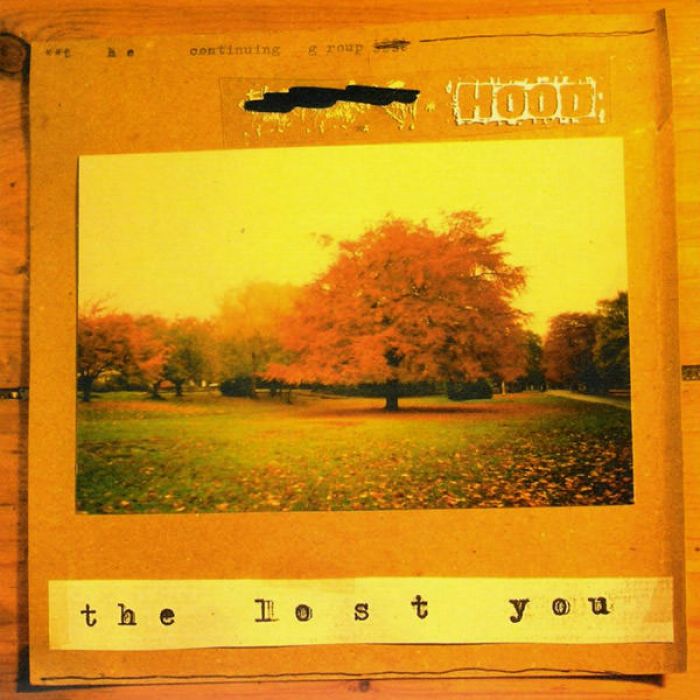The Lost You EP by Hood (Review)

Despite working in (relative) obscurity, Hood has nevertheless been an incredibly prolific band, releasing a number of full-lengths, singles, compilations, and remixes in their 15 year history (has it been that long already?!?). Why, this year alone, they’ve already released a new album (Outside Closer), 2 CD singles, and 2 7.” As a result, Hood can sometimes be frustratingly difficult band to keep track of over the years; as soon as you think you’re all caught up with the band’s sonic endeavors, you find something else you didn’t even know existed.
Fortunately (for me, at least), the band has yet to really disappoint with anything of their’s that I’ve picked up. Even their weakest stuff — and I’ve yet to find a release of their’s that was truly weak, though I only have a fraction of their total discography — contains at least a couple of nuggets well worth the sticker price.
The Lost You EP is a uniformly solid companion to Outside Closer. The single and title track was one of my least favorite tracks on the album, simply because it’s disjointed, glitch-like structure is so at odds with the pastoral soundscapes that drew me to the band in the first place. But even then, it’s not a bad track, and is a far more successful combination of glitch and fractured electronics with pop music than what I’ve heard from other bands attempting a similar sound.
I find the title of the second track, “You Can’t Breath Memories,” ironic because that sounds exactly like what the band is trying to do here. Hood’s music has always had a nostalgic, haunted bent to it. And here, the piece is composed largely of vocal samples, dragged and drawn out until the whole piece sounds like a collection of ghostly gasps and drones. A plucked bassline and scattered drumming round out the song, but they sound more like an afterthought than anything else, and certainly do little to make the track any less intangible, haunting, or unsettling.
Next to the title track, “The Rest Of Us Still Care” is probably the most song-like track on the disc. The piece is more in the vein of the material on, say, Rustic Houses, Forlorn Valleys, albeit more uptempo and concise. However, the band lets just enough damaged atmospheric work drift in between the more song-like elements to keep it from being too song-like. And as always, that just makes the piece all the more affecting, punctuated by the strained, imploring vocals on the bridge.
“By Island Lake (excerpt)” is one of those tracks that I could spend an entire review discussing. Unfortunately, as the name suggests, it’s merely an excerpt, clocking in at just under two minutes. However, I sincerely hope we get to hear the rest of the piece because it’s quite simply some of the most gorgeous music the band has recorded, well, perhaps ever. A too-obvious comparison would be Steve Reich, but I’m more reminded of Ingram Marshall’s ethereal work, with perhaps a touch of Harold Budd. Composed of shimmering layers of autumnal piano drone and accented by a sparse, mourning violin, the excerpt gives the briefest glimpse of some truly gorgeous sonic territory, and I hope the band explores it more thoroughly on future releases.
The EP winds down with “Over The Land Over The Sea,” whose glitchy rhythms and vocal snippets courtesy of Doseone cause me to wonder if this might not be a holdover from the band’s Cold House sessions. Whatever the case, it feels more like an extended idea session than a track proper, which is fine because the various ideas, sounds, and snippets the band introduces — from Doseone’s vocals to the eerie backing vocals to the drones to the barely-there chimes — all work.
Hood has been one of my favorite bands for a long time, ever since I heard The Cycle of Days and Seasons. I remember feeling a little perplexed when I first heard that release. I knew I liked it, but there was something about it that felt just barely out of reach, something intangible that haunted, frustrated, and compelled me. And I’m glad to say that, years later, the band hasn’t lost it, whatever it is. Their music, even in EP form, is as mercurial and affecting as ever, while still managing to hint at exciting things that may come.